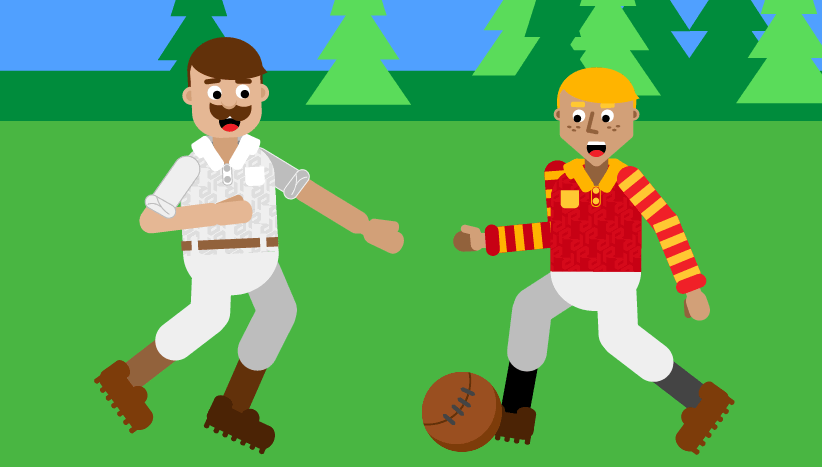A Kick in the Past: How Football Began!
Hey there, sports fans and history buffs! Today, we're diving cleats-first into the quirky and somewhat muddy history of football. Yes, we're talking about the game where feet meet balls, and fans go wild!

1. The Ancient Beginnings: 'Ball' Back in Time
Long, long ago, before your great-great-great-grandparents were even a twinkle in the eye, people were already kicking things around for fun. Ancient civilizations, like the Greeks and Romans, played games involving balls and feet. But, let's be honest, their version of football was more 'kick the can' than the FIFA World Cup.
2. Medieval Madness: The 'No Rules' Rulebook
Fast forward to medieval times, and things got a bit, well, chaotic. Imagine a whole village, from the baker to the blacksmith, chasing a pig's bladder (yep, that was the ball) across fields, through streets, into someone's backyard chicken coop - all in the name of fun! Goals? What goals? It was more like a free-for-all, and the only rule was... there were no rules.
3. Fancy Footwork in England: A Game is Born
Now, let's leap into England, where football really began to take shape. By the 19th century, schools started to think, "Maybe we should have some rules?" So, they each came up with their own. Imagine playing a game where the rules change every week! It was like trying to bake a cake without a recipe - a bit messy but still deliciously fun.
4. The Great Divide: Rugby or Football?
Here's where things get spicy. Some folks thought, "Why just kick the ball when you can carry it too?" And thus, rugby and football went their separate ways, like two siblings who couldn't agree on what game to play. Football said, "No hands, please," while rugby declared, "Let's get handsy!"
5. The Birth of Modern Football: From Chaos to Cups
In 1863, a bunch of English clubs and schools got together and said, "Enough of this nonsense." They formed the Football Association and finally put down some solid rules. No more carrying the ball, and definitely no tripping (looking at you, sneaky players of the past). This was the real start of football as we know it - organized, exciting, and ready to take on the world.
6. Football Today: A Global Phenomenon
From those quirky beginnings, football has grown into a global giant. It's a game that brings people together, makes us shout at TV screens, and occasionally cry over missed penalties. It's a rollercoaster of emotions, a ballet of footwork, and, at its heart, still that crazy game of chasing a ball – just with nicer shoes and better haircuts.
7. Conclusion: The Beautiful Game
So, there you have it – a trip down the memory lane of football. From ancient times to the modern-day spectacle, football has been about joy, community, and, of course, scoring those sweet, sweet goals. It's a beautiful game with a history as rich and varied as the fans who adore it.
And remember, next time you're watching a match, think of those medieval villagers and their pig's bladder – they'd be proud to see how far we've come! 🌍⚽
This is a playful take on the history of football that mixes facts with humour, creating an engaging and light-hearted reading for you to enjoys
